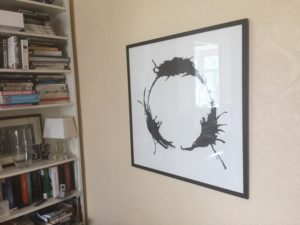I don’t know what I want to say. If you don’t mind, I’d like to noodle around a couple of points that have become a thing this week. There’s a connection, I don’t know what it is.
Yesterday I was in a Performing Arts school talking about journalism and at one point we got into a discussion about the dull things journalists have to do. A teacher made the suggestion that the amount of reading you have to do is, well, not dull, but a chore.
I worked it out in front of them: I probably read a couple of hundred headlines a day, maybe a hundred starts or standfirsts to the ones that intrigue me, then maybe just sixty full articles. But I couldn’t tell you which of that is for work and which is for pleasure as they overlap: these are topics I work in but they’re topics I’m interested in.
Then one 11-year-old said that it was the amount of writing. I’ve only this moment, typing that to you, realised that the first dull suggestion was reading and the second one was writing. I suspect I may have found what my point is: these people I spoke to don’t want to be journalists.
Only, there’s one more thing knocking around my head. As well as me, there were two BBC television news people talking to these kids. I’d say I’ve rarely felt so outclassed but actually there are times when I’m that outclassed daily. Really, though, these two had presence and you were just immediately drawn to them.
One told me about having worked in schools and universities plus then seeing how those pupils and students behave when they get jobs in television. She said that it was common to find them refusing to fetch props, get coffees or even to shadow someone doing the job they apparently want so much.
Maybe this really is my point: they don’t want to be what they think they want to be.
Few if any of the 120 or so pupils I saw yesterday will ever choose to become writers. That they’ve seen something about it all and can make that choice knowing gigantically more than I did when I was their age, that’s fantastic. That the school does many of these days giving their pupils access to all manner of careers is perfect. I wish I’d gone to this school or that my school had been anything like it.
But of those people in any school, any education establishment, who want to become writers and journalists, I am suspecting now that many of them actually want to be what they think the job is.
The television newcomers want to direct Panorama in their first week, that kind of thing. Some or maybe many would-be journalists and writers want to be journalists and writers who don’t write or read.
This could all be obvious, you’re nodding at me now, and I think I’m being slow. But these thoughts about yesterday are clicking together with one I’ve seen before. When I meet a new writer and they say something about wanting to be the next JK Rowling with all her millions, I know they never will be. I haven’t even seen a word of their writing and I know they haven’t got it. They don’t get what she did. What she does.
If someone wants to write because they’ll enjoy being a published writer, they won’t make it. I feel I’ve lurched off into some kind of patronising diatribe now and I’m pretty sure that’s not what I was trying to figure out with you here.
You have to see the necessity and the pleasure of the dull things. Maybe that’s it. Yet I’m so deep into this and I so love what I do that I am struggling to name a dull bit.
Well, the fact that I’m full of cold again and must now go deal with spreadsheets, that’s getting there.
